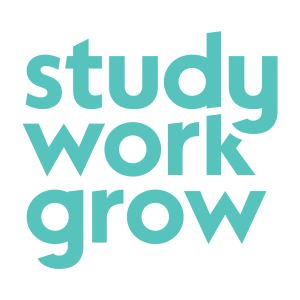Scholarships hold the power to transform dreams into reality. They not only provide financial support, but also recognise the unique strengths and potential within each individual. In this blog, we’ll explore various types of scholarships tailored for students with disabilities and share some real life success stories.
Types of scholarships available
There are lots of different types of scholarships out there, so there’s almost certainly one to fit your unique circumstances and needs.
Disability-specific scholarships
Some scholarships are designed with specific disabilities in mind. For example, Vision Australia offers scholarships dedicated to students who are blind or have low vision, providing them with resources to support their studies.
General disability scholarships
Other scholarships are open to students with any type of disability. Organisations like the Frank Hall-Bentick Education Fund offer opportunities for a wide range of disabilities.
Other scholarships
Even if disability isn’t mentioned specifically in the eligibility criteria, this doesn’t mean you shouldn’t still apply. If you’ve excelled academically, come from a rural area, or have overcome financial hardship (just to name a few examples), there’s bound to be a scholarship out there for you.
How to find and apply for scholarships
Finding and applying for a scholarship doesn’t have to be hard. There are lots of resources out there to help.
Online resources
Going straight to the website of the institution you want to study at is an excellent place to start your scholarship search. Here you can view a whole range of scholarship opportunities, including those tailored for students with disabilities.
Check out the websites of relevant organisations too, such as disability organisations and charities. Even if they don’t have any formal scholarship opportunities, you could contact them and discuss other potential support options.
You can also search scholarship databases, which feature scholarships from a wide variety of institutions and organisations (such as our very own).
Application tips
Crafting a compelling application is key to securing a scholarship. Be sure to highlight your strengths, experiences, and aspirations. Don’t forget to gather necessary documents such as medical records or recommendation letters to strengthen your case. Keep track of application deadlines to ensure you don’t miss out.
Real life success stories
If you’re still looking for reasons to apply for a scholarship, here are some real life examples of students who have gone on to thrive after receiving a scholarship.
Jarred
Jarred Austin has always known he would one day go to university, but was worried that his disability would affect him both physically and financially. Thanks to the Movement Disorder Foundation, he is now studying a Bachelor of Creative Arts and a Bachelor of Computer Science at the University of Wollongong.
“Both my degrees are dependent on technology and the scholarship helps me ensure that I have working technology,” he said. “But it also helps me in other areas, like my day-to-day living expenses.”
The scholarship has meant Jarred doesn’t have to compromise either his study or his health and is able to focus on his ambitions to one day write a novel.
“I’d like to write something about my own experience as a person with a physical disability to try and change people’s perception about what it’s like,” he said.
You can read Jarred’s story here.
Martha
Martha was a History student with Autism and ADHD at the University of York. At first she was nervous about being able to make the most out of university life, but applying for a Disabled Students’ Allowance helped her cover the extra costs of studying as a disabled person.
“[My support] includes biweekly mentoring, and help with ‘study skills’ and organisation,” she said. “But it can cover anything, from assistive technology, to help with travel costs.”
“The most important thing is to make your uni experience your own. Everyone’s journey is totally unique. There is no single path.”
You can read Martha’s story here.
Antoni
Dr Antoni Tsaputra has used a wheelchair his whole life, and while growing up in Indonesia, struggled to find the support he needed.
“Some people with disabilities do not know what their rights are, and they have no idea of the importance of speaking out to voice their concerns, to voice their challenges and demand the government be more accountable,” he said.
In 2009, Antoni was awarded an Australian Development Scholarship to study a Master of Arts in Journalism and Mass Communication at Griffith University.
“Being a disabled person is only a small part of our identity as a human being, you know,” he said. “I would like people to see me and others for what we have achieved. We have intersectional identities.”
Since graduating, Antoni has gone on to do incredible work, completing a PhD and supporting the international disability community through his research and disability organisations.
You can read Antoni’s story here.
Benefits beyond financial support
While money is undoubtedly a huge part of scholarships, they often have many other benefits too, including:
- Networking opportunities
- Skill building opportunities
- Access to exclusive events
- Travel and exchange opportunities
- Access to study assistance and mentors
- Opportunities to connect with peers
- And much more
Empowering futures
Scholarships are more than just financial aid; they are a testament to your potential and success. By seeking out and applying for scholarships, you’re taking a huge step towards realising your study dreams.
You can read more about scholarships and search our database here.


